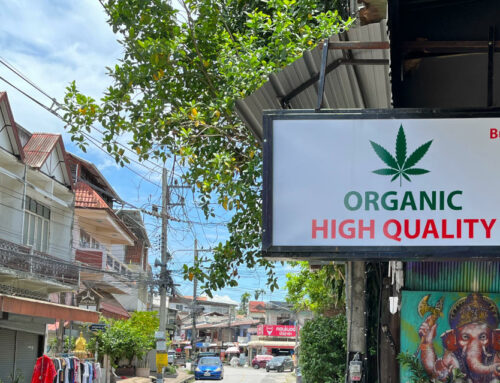Germany’s Cannabis Legalization: The Debate Over Edibles and Public Health
BERLIN– Germany is currently embarking on a significant journey toward cannabis legalization, with ministers unveiling a national cannabis reform strategy. The plan involves legalizing personal freedoms like possession and cultivation, as well as noncommercial cannabis clubs. It’s a multifaceted approach to legalization that could lead to regional pilot programs.
A contentious issue in this reform, however, is the question of cannabis-infused edibles. While cannabis smoke is not the same as tobacco smoke, there are strong arguments to suggest that consuming cannabis in a smokeless form, such as edibles, can be better for public health.
The Benefits of Edibles
Cannabis-infused edibles offer a smokeless alternative to traditional smoking. The ability to consume cannabis without inhaling smoke is appealing to many consumers and could provide a crucial aspect of a public health strategy aimed at reducing the risks associated with smoking.
Legal cannabis edibles can be regulated, with restrictions on sales to minors and advertising that might appeal to children. Packaging can be made child-proof, and quality can be maintained, ensuring that the products are safe and responsibly marketed.
Minister Lauterbach’s Concerns
Despite these potential benefits, Germany’s Health Minister, Karl Lauterbach, has expressed strong opposition to legalizing cannabis edibles, arguing that they “are often aimed at children and young people in a dangerously trivializing way.” He further stated his desire to ban them altogether, citing concerns that resonate with longstanding fears propagated by cannabis opponents.
The Counter-Argument
Those who advocate for the inclusion of edibles in Germany’s cannabis legalization framework argue that Lauterbach’s concerns are misplaced. By comparing the situation to other jurisdictions with legal cannabis markets, they point to measures that can be implemented to mitigate the risks.
These measures include:
- Age Restrictions: Legal adult-use edibles can be sold only to adults, providing an improvement over the current unregulated market in Germany.
- Advertising Regulations: Implementing rules to prevent marketing that targets children, including restrictions on names, characters, or shapes that could appeal to minors.
- Packaging Regulations: Using child-proof containers for all cannabis products to reduce the risk of accidental consumption.
The debate over the inclusion of edibles in Germany’s cannabis legalization plan is a microcosm of broader issues around public health, regulation, and consumer choice. By carefully examining the experiences of other jurisdictions and implementing robust regulatory measures, Germany could include edibles in its legalization framework in a way that addresses the Health Minister’s concerns while still offering consumers safe and responsible options.
As Germany continues its path toward cannabis legalization, the decisions made regarding edibles will likely be watched closely by other countries considering similar reforms. The country’s approach could serve as a model – or a cautionary tale – for how to balance consumer preferences, public health, and regulatory oversight in the emerging legal cannabis market.




































